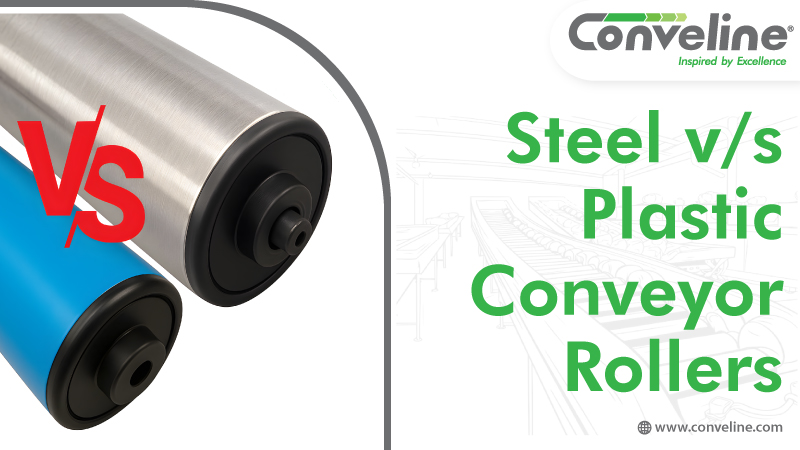
- Conveline Systems
- 24th Mar 2022
- Conveline Rollers
Conveyor rollers are a fundamental component of any conveyor system. They run along underneath the belt to assist with material weight support and impact, amongst other functions. Two of the common materials use are steel and plastic, but which material is better for your purposes?
For many industries that use conveyor systems, steel rollers (including mild and stainless steel) seem to be the top choice. However, in some instances, plastic may provide an appropriate solution.
There are many important factors to consider when deciding on steel or plastic rollers for your conveyor system. These include what materials are being processed, the environment in which your conveyor system operates, the size of your operations, costs, and more.
Materials Transported
The material which your conveyor system transports plays an important factor in deciding on whether you should be using steel or plastic. If the materials are heavy and/or large in size, steel rollers do a better job at withstanding their weight and impact force. Plastic rollers are more suited to light-weight materials as they are not as sturdy as steel.
Corrosive materials however, can cause mild steel rollers to wear and break down. Stainless steel or aluminium steel rollers are an alternative solution to mild steel as they are resistant to corrosion. Plastic rollers are also a corrosive-free option.
Operations Environment
Environments that are at high temperatures (such as in the Australian outback) may also be detrimental to plastic rollers. Steel rollers can withstand extreme heat, both in regard to operating environment as well as temperature of materials transported.
When compared to steel, plastic has a greater level of thermal expansion when exposed to high temperatures. When using plastic rollers, operating temperature must be carefully considered otherwise you may risk roller failure due to warping.
Size of Operations
Plastic conveyor rollers, due to their limited durability and strength, can be more suited to smaller conveyor operations such as in food production industries. However, many food production industries now opt for stainless steel rollers over plastic rollers for their food-grade standard and also because they are corrosion-free and easy to clean.
Larger operations, such as in the mining industry, will fare off better with steel rollers due to their typically larger size, higher capacity and long-lasting strength.
Costs
Steel rollers are, in almost all cases, cheaper than plastic rollers to manufacture. Steel rollers have been used in the mining industry as the standard for many years and are manufactured in economies of scale. The manufacturing process has been continuously improved and innovated over the years that it’s now down to a fine art.
Plastic rollers are still a fairly new product and have a long way left to go for innovation.
Design Advantages
As a base material, plastic is not as strong or durable as steel, therefore plastic rollers are naturally weaker than steel rollers. However, plastic rollers have the advantage of not causing damage to the belt by “pizza wheeling”.
Pizza wheeling is when steel rollers are used past its operating life and the roller shell is worn through, exposing the side plates. When the side plates are exposed, the upright edge acts like a pizza cutting wheel, cutting, and damaging the conveyor belt while it is running.
Plastic is usually a softer material than the rubber conveyor belt. When the shell is worn through on plastic rollers, the pizza wheel effect still occurs but the plastic is too soft to damage the belt.
A simple design change for both steel and plastic rollers can be made to prevent pizza wheeling. If you increase the size of the roller sidewalls, the pizza wheeling does not occur because the side walls are thicker and is no longer a thin, sharp edge. This design change adds additional cost due to more material used to thicken the side walls.
Recent Posts
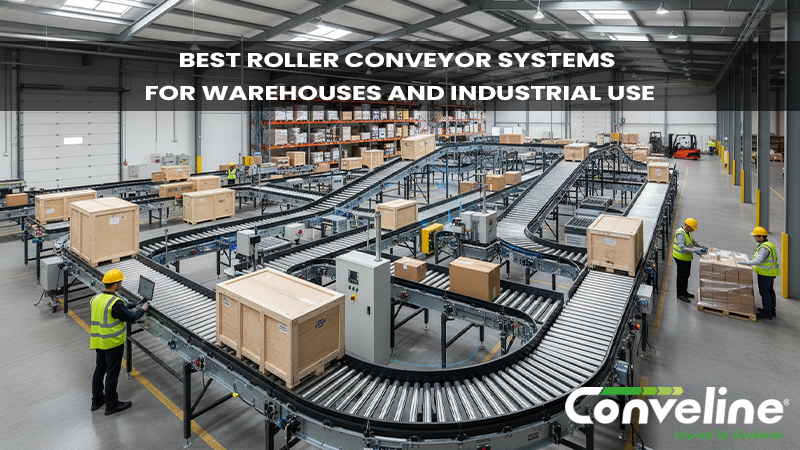
Best Roller Conveyor Systems for Warehouses and Industrial Use
February 09, 2026
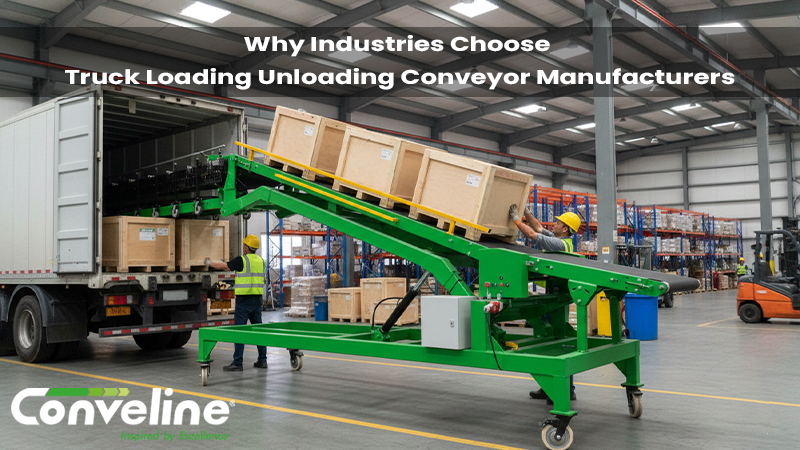
Why Industries Choose Truck Loading Unloading Conveyor Manufacturers
February 09, 2026
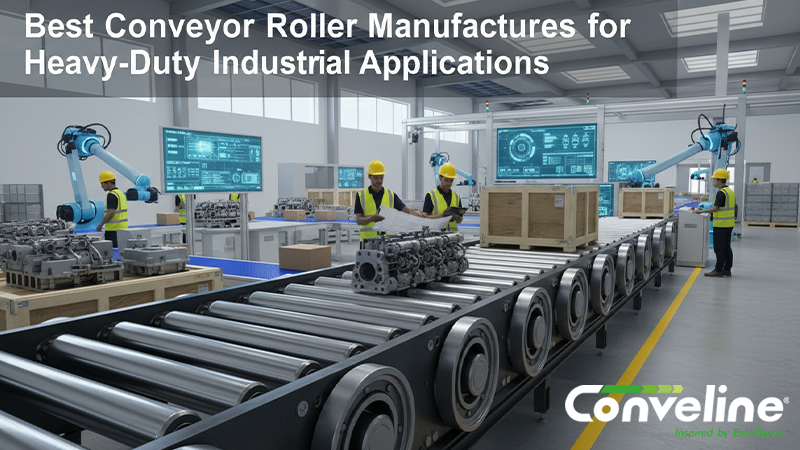
Best Conveyor Roller Manufacturers for Heavy-Duty Industrial Applications
February 09, 2026
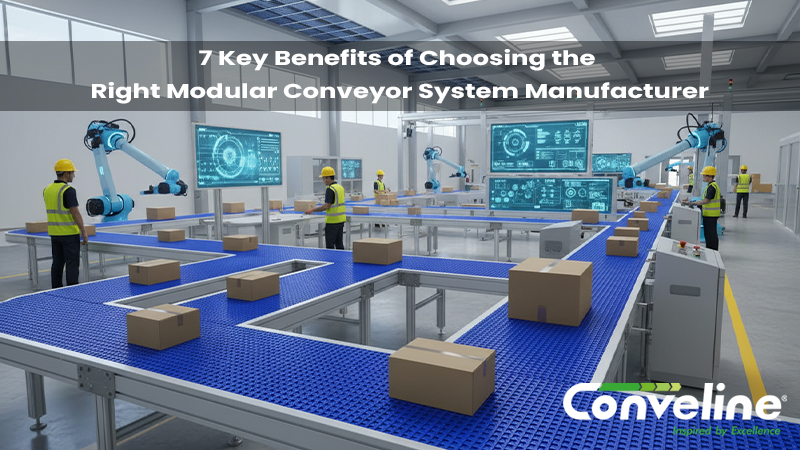
7 Key Benefits of Choosing the Right Modular Conveyor System Manufacturer
February 09, 2026
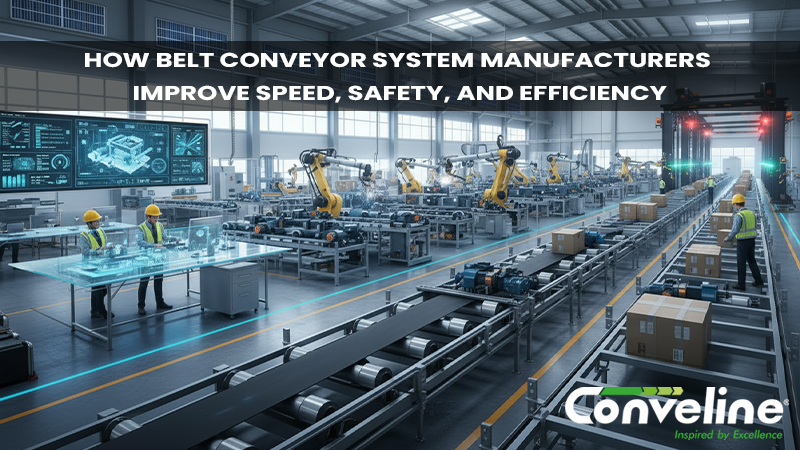
How Belt Conveyor System Manufacturers Improve Speed, Safety, and Efficiency
February 09, 2026
